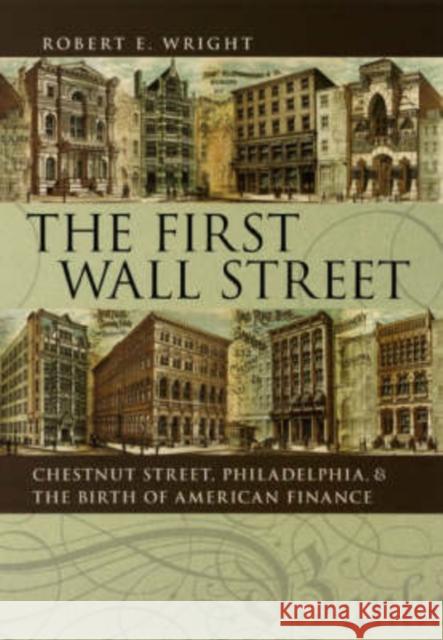The First Wall Street: Chestnut Street, Philadelphia, and the Birth of American Finance » książka
topmenu
The First Wall Street: Chestnut Street, Philadelphia, and the Birth of American Finance
ISBN-13: 9780226910260 / Angielski / Twarda / 2005 / 218 str.
When Americans think of investment and finance, they think of Wall Street--though this was not always the case. During the dawn of the Republic, Philadelphia was the center of American finance. The first stock exchange in the nation was founded there in 1790, and around it the bustling thoroughfare known as Chestnut Street was home to the nation's most powerful financial institutions.
The First Wall Street recounts the fascinating history of Chestnut Street and its forgotten role in the birth of American finance. According to Robert E. Wright, Philadelphia, known for its cultivation of liberty and freedom, blossomed into a financial epicenter during the nation's colonial period. The continent's most prodigious minds and talented financiers flocked to Philly in droves, and by the eve of the Revolution, the Quaker City was the most financially sophisticated region in North America. The First Wall Street reveals how the city played a leading role in the financing of the American Revolution and emerged from that titanic struggle with not just the wealth it forged in the crucible of war, but an invaluable amount of human capital as well. This capital helped make Philadelphia home to the Bank of the United States, the U.S. Mint, an active securities exchange, and several banks and insurance companies--all clustered in or around Chestnut Street. But as the decades passed, financial institutions were lured to New York, and by the late 1820s only the powerful Second Bank of the United States upheld Philadelphia's financial stature. But when Andrew Jackson vetoed its charter, he sealed the fate of Chestnut Street forever--and of Wall Street too. Finely nuanced and elegantly written, The First Wall Street will appeal to anyone interested in the history of the United States and the origins of its unrivaled economy.










